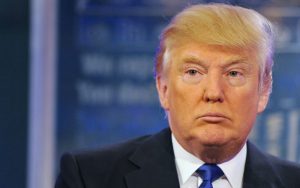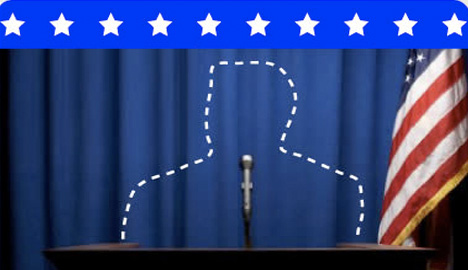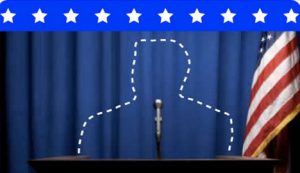The Politics of Trump’s Charisma
Politics, it seems to me, for years, or all too long, has been concerned with right or left instead of right or wrong. — Richard Armour
Over the past two weeks, this blog has discussed the psychology of charisma: first some of the premises about it, and then subsequently, what influences perceptions of it. And although it’s fun to consider this knowledge in light of increasing your own charisma (or at least understanding why others are charismatic), today, we’re going to talk about some consequences of it.
Namely, in regards to politics.

In 2002, Pim Fortuyn emerged rapidly and surprisingly as a controversial candidate for Prime Minister of the Netherlands. And when you consider the similarities between him and Trump, they’re rather shocking.
Pim was mostly considered an outsider to politics. He took complicated messages and distilled them to simplicity. He voiced contentious ideas, like the banning of all Muslims from the country. He supported a strange mix of both conservative and liberal policies. And he, like Trump, was charismatic (not to mention, his last name also has similar connotations of “success.”)
Very important to his popularity, though, was the then recent terrorist attacks of 9/11. Or in Trump’s case, the surge of activities by ISIS.
A lot of research has documented that times of “social crisis” or “social change” provide a fertile environment for the charismatic; that is, voters want confidence and vision (key traits of the charismatic) in times of terror. And with both Fortuyn and Trump, they’ve provided that.

But even with Trump’s charisma in these uncertain times, he still backs some rather untenable positions, whether that is his flipping stance on abortion rights or who exactly is going to build that southern wall he wants. However, an incredibly prophesying research article actually says he should be doing this.
Across a series of studies, college students came into the lab and were either made to think about 9/11 or pain (i.e., both produce discomfort to think about; however, the former elicits terror-related thoughts). After this, participants learned about a student leader who was either 1) charismatic or not, and 2) supported either one side of an issue or both (even though they somewhat contradicted one another).
From this, the researchers found that only in the condition when death was on your mind, the speaker was charismatic, and he supported an almost contradictory stance was he (and his policies) liked the most. And in fact, only under these conditions were participants most likely to join the college leader’s organization.
So in explaining Trump’s success, it comes down to a confluence of factors: 1) he is a charismatic leader in a time of salient terrorism; 2) he provides a broad vision for the people (which voters really desire in times of crisis); 3) he supports mixed stances which appeals to a variety of people; and 4) his controversial opinions can be perceived as confidence, for unless you were a remarkably confident person, a politician would never express such sentiments.
Now of course there are other factors that contribute to Trump’s success, but these empirically tested reasons definitely provide a fundamental base for his popularity. So to leave you with a final analogy, consider this:
After 9/11, the sale of SUV’s skyrocketed. Why? Because after those terror attacks, the country was in a time of fear, and SUV’s promise safety and security. In a similar way, Trump does just that: he appeals to a variety of ideologies; he exudes confidence and charisma; and he appears to promise a reliable exit from our current world crises.
However, we are animals not at the whims of our more primal, emotional instincts. We have insight, deliberation, introspection. So when it comes time to vote later this year, separate reasons from feelings and choose the candidate who will be the best for the people of this country and not just your own psychological comfort.
Politically
jdt
Cohen, F., Solomon, S., Maxfield, M., Pyszczynski, T., & Greenberg, J. (2004). Fatal attraction: The effects of
mortality salience on evaluations of charismatic, task-oriented, and relationship-oriented leaders. Psychological
Science, 15, 846–851.
Gordijn, E. H., & Stapel, D. A. (2008). When controversial leaders with charisma are effective: The influence of terror on the need for vision and impact of mixed attitudinal messages. European Journal of Social Psychology, 38(3), 389-411.
Kirkpatrick, S. A., & Locke, E. A. (1996). Direct and indirect effects of three core charismatic leadership components on performance and attitudes.Journal of applied psychology, 81(1), 36.









While lots of our choices in leaders may be in response to our fears, don’t put everyone in the slot of being a victim of their emotions, there by, not making good choices (dummies). Many, including myself, simply think that of the two choices, one is a strictly self serving egotist with a proven record of government control of your life and the other is a successful egotist who has at least proven to be successful in today’s overegulated world. In truth, most of Trumps’ support is probably coming as a result of protest against the divisiveness created by an unpopular, narcissistic President who has been nullified by the election of an unpopular Congress, both elected to nullify the other.
Thank you for the comment! First, let me touch on a good point you make more generally–and one I should do a better job of establishing: psychological theories are broad descriptions of human behaviors, and they do not account for all the factors that lead to a particular outcome.
And as you point out, there are a number of other reasons people could vote for Trump or Hillary not even touched on in this post. And in fact, you could apply some of the theories for Trump’s success to that of Hillary’s, too.
However, I would like to mention that emotion doesn’t always mean “dummy.” Our emotions developed evolutionarily to help guide us toward our most prioritized goals. Although emotion often gets credited with being “so worse than reason,” really, reason without emotion is useless as emotion is what motivates us to actually act.
Again, thanks for commenting!
Good one Jake!!